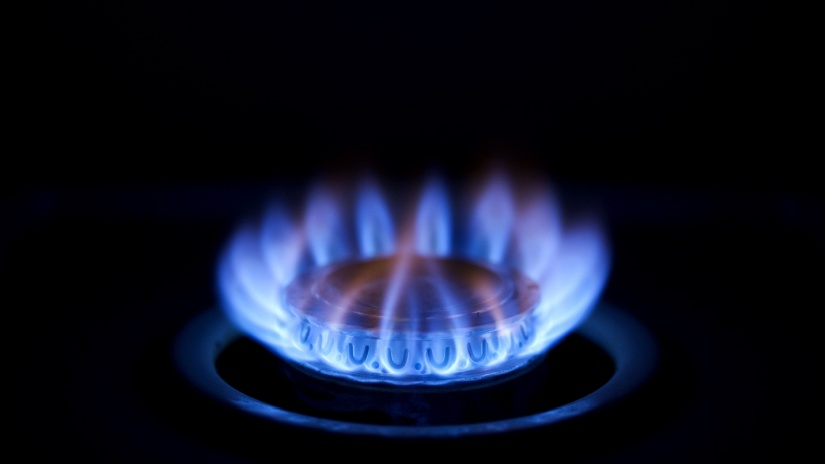Knowledge Centre
Is your LPG gas heater safe to use?

Curious about the safety of using LPG heaters at home? This Compare Energy guide explains when an LPG heater might become unsafe and provides tips for safe usage.
Winter is always coming (thank you, House Stark) and heaters can be lifesavers on chilly mornings, but if not used correctly, they can pose serious health and safety risks. Heaters powered by natural gas or LPG carry the risk of carbon monoxide poisoning and even small house fires if used improperly. Knowing how to use them is just as important as knowing how to avoid the mistakes often made with LPG gas heater use.
Is there a safe way to use these heaters at home? Before you discard all your LPG heaters, we've compiled essential information about these devices. You'll also find tips on how to use your LPG heater safely and what could happen if you don't follow safety guidelines.
What are LPG heaters?
An LPG heater is a type of space heater that uses Liquefied Petroleum Gas (LPG) to provide warmth indoors or outdoors. There are two main types: flued and unflued.
A flued heater has a chimney or flue that expels air pollutants and water vapour outside, keeping indoor air clean.
Unflued gas heaters, also known as portable heaters, lack this chimney feature. This means any pollutants stay inside, so proper ventilation is crucial to prevent harmful buildup.
If you're not sure which type of gas heater you have, check your owner's manual. It should indicate the type and provide safety and ventilation instructions from the manufacturer.
How do they work?
LPG heaters operate by using a piezoelectric igniter to initiate the heating process. This ignition system features a mechanism akin to a hammer that strikes to generate a spark, igniting the LPG within the heater.
Once ignited, the heat is typically dispersed through a porcelain element designed to distribute the flame evenly and efficiently. This ensures that the warmth is adequately spread for heating the surrounding area.
Most LPG heaters come equipped with a temperature control system. Basic models offer a straightforward choice between high and low settings, allowing users to adjust the heat output to their preference. More advanced heaters are fitted with thermostats, enabling precise temperature regulation for enhanced comfort and energy efficiency.
What to avoid when buying a heater
Selecting the best LPG or natural gas heater for your home requires considering the fuel type, heating capacity, budget, and other specific factors.
Here are some key points to keep in mind when choosing a gas heater:
Match the heater to your gas supply
Gas heaters are designed for specific fuel types: LPG (propane) or natural gas (methane). It's crucial to buy a heater that matches your home's gas supply, as using the wrong type can be dangerous.
Why does this matter?
- Energy content: LPG has a higher energy content, so it takes less gas to produce the same amount of heat compared to natural gas.
- Combustion ratio: LPG heaters require an oxygen-to-gas ratio of about 25:1, while natural gas heaters need a ratio of around 10:1. LPG is delivered in smaller quantities but at higher pressure to ensure proper combustion.
Choose the right size
Gas heaters come in various sizes with different heat outputs. Choosing the right size is important for efficiency and safety. An undersized heater won't adequately heat the space and an oversized heater costs more and can be unsafe.
Use the table below as a general guide, or consult with a store representative to determine the best size for your home:
| Area size (m2) | Heater output (kW) |
| Up to 20 | 2-3 |
| 20-40 | 4-5 |
| 40-60 | 6-8 |
| 60+ | 9+ |
By considering these factors, you can ensure that you choose the most effective and safe gas heater for your home.
What are the risks?
LPG heaters come with risks, including carbon monoxide emissions and the potential for fires or explosions. LPG is a flammable fuel, so leaks, poor ventilation, or faulty appliances can be dangerous.
Carbon monoxide (CO) is a major concern. It's odourless and colourless, making it hard to detect. Symptoms of CO poisoning include:
- Dizziness
- Nausea
- Headaches
- Feeling unwell only at home
- Illness affecting multiple people or pets
If you experience these symptoms, turn off the heater immediately and leave the house to get fresh air. Don't use the appliance again until a professional has inspected it. Seek medical help if you suspect CO poisoning.
A well-maintained gas heater should produce minimal carbon monoxide. To ensure safety, have your heater serviced by a professional at least every two years.
House fires are another risk if heaters are not used correctly. Gas heaters are highly flammable, so avoid placing objects on top of them and check for gas leaks.
Could I bring my outdoor heater inside?
Absolutely not. Manufacturers have very different requirements for indoor and outdoor heaters. Indoor heaters must operate safely in enclosed spaces, while outdoor heaters benefit from open ventilation.
Indoor heaters are designed to minimise carbon monoxide production and work well in smaller, enclosed areas. On the other hand, outdoor heaters, like those used on patios, are built to spread heat over a larger space.
Australia has some of the strictest standards for gas appliance emissions globally. As a result, indoor heaters must meet or exceed these rigorous standards, ensuring high safety levels. Outdoor heaters, however, are not subject to the same strict regulations.
Can I leave an LPG heater on overnight?
It's not a good idea to leave a heater running for long periods or overnight. Even though most heaters produce little to no carbon monoxide, extended use can cause this gas to build up to unsafe levels, and you won't be able to detect or fix this while you’re asleep.
There’s also the worry that if a problem like a fire occurs, you might not be able to react in time, never mind the fact running heaters for long periods can also lead to dry skin, allergies, or irritation. For safety and comfort, avoid using heaters while you sleep and just double or triple the blankets for warmth.
LPG gas heater safety tips
Using a gas heater can be safe if you follow some important guidelines. Here are a few tips to ensure safe usage:
- Ensure proper ventilation. Make sure your room is well-ventilated. Gas heaters need a supply of fresh air to burn fuel efficiently and to prevent the buildup of dangerous gases like carbon monoxide.
- Install carbon monoxide detectors. These devices can alert you if there's a dangerous buildup of CO.
- Maintain them regularly. Make sure that your heater is regularly serviced by a professional to keep it in good working condition and reduce the risk of faults.
- Always follow instructions. Always follow the manufacturer’s guidelines for safe use and operation. Some heaters are specifically designed for overnight use, while others are not.
- Avoid blockages. Keep the heater's vents and airways clear of obstructions so that you can ensure a good flow.
Get gassed with Compare Energy
It’s so important to make sure that you are prepared when winter is coming. You may not need an army of dragons or a castle, but you definitely need your home to be warm and ready.
The right gas plan with the best provider can help you there, and the friendly experts at Compare Energy are always happy to help. Call today on 1300 790 106.

